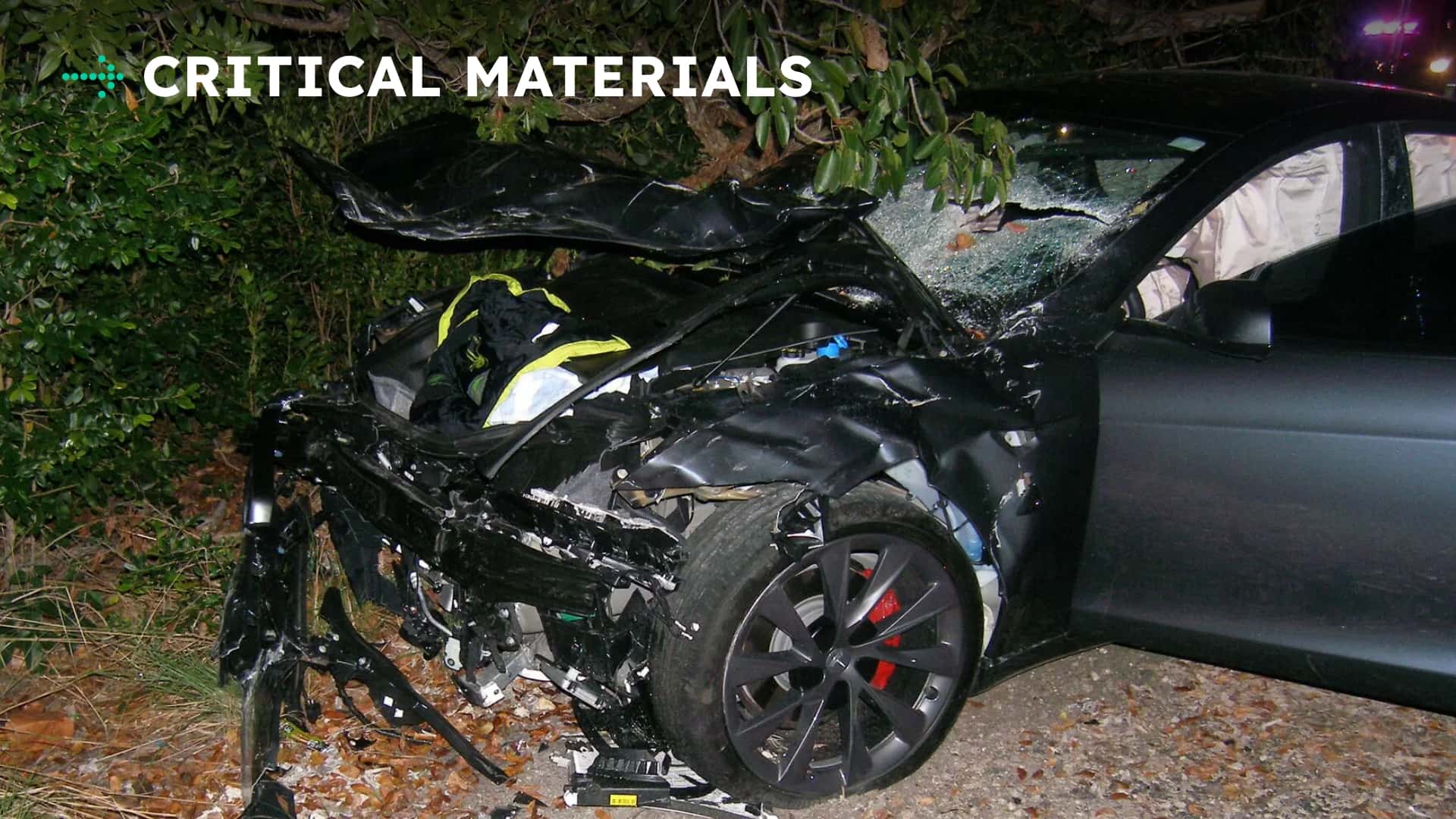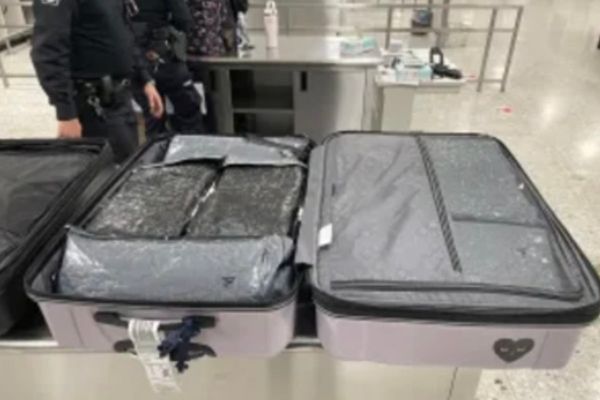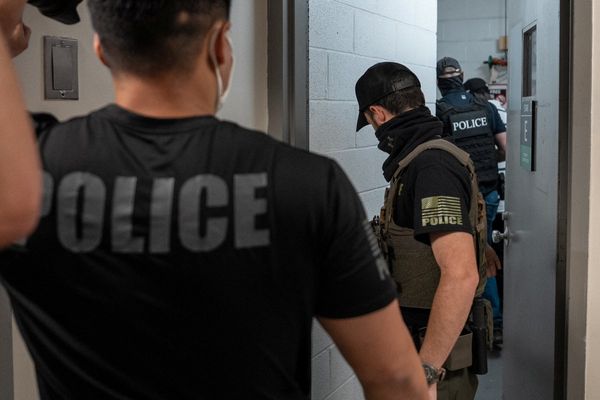
Thanks, in no small part, to the rise of artificial intelligence, a new era has arrived for autonomous cars. New players are springing up all over the world, established leaders are having to up their game, and more and more consumers are requesting automated driving assistance systems (ADAS) features.
But collectively, we haven't answered many questions about who's truly liable in the event of a crash—especially ones involving ADAS technology on ordinary cars. That's why I'm curious about the legal ripple effects of a recent Florida court case involving a horrific fatal crash involving Tesla's Autopilot features.
That kicks off this Monday edition of Critical Materials, our morning roundup of industry and technology news. Also on deck today: BMW wants its upcoming iX3 to be an electric game-changer, and South Korea's labor unions are none too happy about all these new U.S. tariffs. Let's dig in.
30%: 'Shock Waves' After Tesla's Florida Crash Verdict

On Friday, a Florida jury found Tesla liable to pay up to $243 million to victims in a 2019 crash involving a Tesla Model S that involved the Autopilot system. The details of that crash are horrific, as CNBC reported:
The suit centered around who shouldered the blame for the deadly crash in Key Largo, Florida. A Tesla owner named George McGee was driving his Model S electric sedan while using the company’s Enhanced Autopilot, a partially automated driving system.
While driving, McGee dropped his mobile phone that he was using and scrambled to pick it up. He said during the trial that he believed Enhanced Autopilot would brake if an obstacle was in the way. His Model S accelerated through an intersection at just over 60 mph, hitting a nearby empty parked car and its owners, who were standing on the other side of their vehicle.
Naibel Benavides, who was 22, died on the scene from injuries sustained in the crash. Her body was discovered about 75 feet away from the point of impact. Her boyfriend, Dillon Angulo, survived but suffered multiple broken bones, a traumatic brain injury and psychological effects.
It's certainly not the first time that Tesla's Autopilot or Full Self-Driving tech has landed it in some kind of hot water. The systems, which offer hands-free automated driving in various situations but still require close driver oversight, have been the subject of lawsuits, regulatory investigations, state and federal safety probes and even false-advertising criticisms for years now.
Yet the Florida verdict is notable because it's one of the first major legal decisions over ADAS technology that has gone against Tesla. Other claims have been dismissed or settled by the automaker.
Tesla will appeal the decision. During the case, its attorneys hung the blame on the driver, McGee, for choosing not to monitor the car on Autopilot while he grabbed for his cell phone.
Later, the automaker said in a rare statement that it "only works to set back automotive safety and jeopardize Tesla’s and the entire industry’s efforts to develop and implement lifesaving technology.” (This is, for context, the line Tesla has used for years against Autopilot critics; the company claims it is safer than a human driver or will be eventually, and so setting its progress back will only lead to more fatal crashes as humans stay behind the wheel instead of robots.)
So what does it mean for further legal action against Tesla, and perhaps even the entire autonomous driving industry? The Associated Press gathered some legal experts and here's what they say:
“This will open the floodgates,” said Miguel Custodio, a car crash lawyer not involved in the Tesla case. “It will embolden a lot of people to come to court.”
In addition to a punitive award of $200 million, the jury said Tesla must also pay $43 million of a total $129 million in compensatory damages for the crash, bringing the total borne by the company to $243 million.
“It’s a big number that will send shock waves to others in the industry,” said financial analyst Dan Ives of Wedbush Securities. “It’s not a good day for Tesla.”
The auto industry has been watching the case closely because a finding of Tesla liability despite a driver’s admission of reckless behavior would pose significant legal risks for every company as they develop cars that increasingly drive themselves.
Ultimately, this case may be the first of many that add a new dimension to a century of laws and regulations around driving: who's really liable in the event of a crash, now that automation is involved as well?
60%: The BMW iX3 Aims To Be 'The Benchmark Of The Industry'

Earlier today, you may have read about how the BMW iX3 aims to offer some of the best electric efficiency in its class. That's because the iX3 isn't just another electric luxury crossover (and believe me, we cover so many of those that it's hard to keep track).
It's the opening salvo of BMW's Neue Klasse platform, which is where the company is hanging its future ability to compete with Tesla and an onslaught of high-tech Chinese automakers that are already stealing its market share in Europe. Here's Bloomberg with more from BMW CEO Oliver Zipse:
“We’re 109 years old, and it’s by far the biggest single investment into one architecture we’ve ever done,” Chief Executive Officer Oliver Zipse told Bloomberg in an interview.
The company has said the SUV will manage up to 800 kilometers (497 miles) of range under Europe’s test procedure. With 400-kilowatt maximum charging, drivers will be able to add roughly enough range to get from New York to Washington, DC, after 10 minutes of plugging in.
“This will be the benchmark of the industry,” Zipse said. Neue Klasse will show that BMW “can build superior electric cars, and the rest of the market will have to answer.”
It's an interesting interview. Clearly, Zipse wants the iX3 and the subsequent Neue Klasse EVs to compete with Tesla; he even implies that Tesla is kind of cooked without regulatory credit revenue in the U.S.
But the real game is probably China's automakers, both in that country and in Europe and elsewhere now too. Zipse is adamant that BMW isn't giving up on China and it hopes for the iX3 to reverse declining sales there, even as things don't look great:
“There are market segments where you cannot be profitable,” Zipse said. “If it’s not profitable, we retract.”
That said, the CEO insists it would be a big mistake for BMW — or Europe broadly — to decouple from the the world’s second-largest economy.
“There is so much competency, so much innovation, so many advantages just by virtue of the sheer size and scale of China,” Zipse said. “You cannot ignore that.”
The iX3 will be fully revealed in September. Production of the EV is slated to start at BMW’s newest plant in Hungary, and Neue Klasse plants are planned for the U.S., Munich, China and more in the coming years.
90%: Korea's Labor Unions On U.S. Tariffs: 'How The Hell Is This Our Problem?'

America is the Hyundai Motor Group's largest and most important market. Even before President Trump's tariffs hit, the automaker was planning several big expansions of its U.S. carmaking operations, including the recently opened EV Metaplant in Georgia. Now that tariffs are fully in force, Hyundai is expected to grow its U.S. manufacturing base even further.
But that means it's got a problem back home with South Korea's labor unions, who are fearful that Hyundai moving away from exports will cost them their jobs. Here's what the Korea Times has to say:
According to data from Hyundai Motor and Kia, their combined hybrid sales in the U.S. surged by 45.3 percent to more than 136,100 in the first half of the year.
However, the carmakers’ plan to expand hybrid production for its new line may draw strong opposition from its union members if the expanded U.S. production comes at the cost of reduced operations at Korean factories.
“Even if Hyundai Motor and Kia were hit hard by tariff shock, as evidenced by their drastic earnings fall in the second quarter, their union members will still demand massive pay hikes in their ongoing wage negotiations, which is seen as too excessive,” an official from the industry said.
What a balancing act for automakers who operate globally.
100%: Who Was Really At Fault In That Autopilot Crash?

I'd certainly agree that fishing for your phone while a car is in motion is negligent and reckless behavior. Yet it's also no secret that Tesla has played it fast and loose over the years with what's permissible on Autopilot and FSD, and let's be honest—not everyone who uses that system is always fully up to speed on how it works, or doesn't work.
So what's your read from that crash verdict? Was it on the driver—who also was charged with careless driving, and pleaded no contest there—or was it on Autopilot? Or was it both? And where do liability questions in the autonomy space go after this?
Contact the author: patrick.george@insideevs.com







